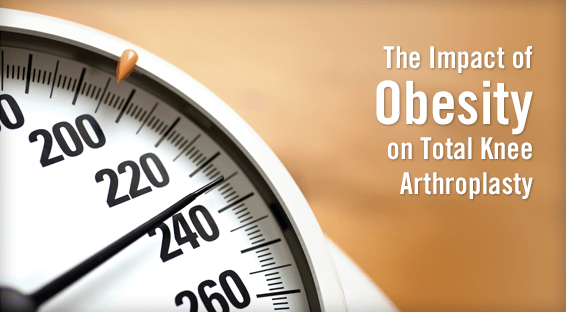According to recent data, more than one-third of American adults were obese in 2010, and studies continue to show that obesity prevalence is rising throughout the United States. Research has shown that obesity negatively impacts the risks and outcomes of various diseases, including knee osteoarthritis, and leads to higher healthcare expenditures. Total knee arthroplasty (TKA) is increasingly being performed in obese patients. In fact, studies suggest that obese patients represent at least half of all patients undergoing TKA.
“Obesity does not seem to interfere with the effectiveness of TKA, but evidence is lacking as to whether overweight or obese patients undergoing these procedures assume higher costs than their normal-weight counterparts,” says Hilal Maradit Kremers, MD, MSc. She notes that obesity may be associated with higher costs in TKA because of the increased prevalence of obesity-related comorbidities. It may also be due to the higher risk of short-term TKA complications, such as infections or thrombovascular events.
Previous analyses have had mixed results in establishing patterns in the relationship between obesity and TKA costs in terms of complication and readmission rates. Discrepancies in these studies may be the result of methodological differences or from variations in the way researchers have adjusted for comorbidities. Costs from comorbidities and complications can theoretically be considered attributable to obesity too. “It’s important to examine the effect of obesity on costs in patients undergoing TKA and the impact of the higher prevalence of comorbidities and complications among obese individuals,” says Dr. Maradit Kremers.
Analyzing New Data
To explore the issue further, Dr. Maradit Kremers and colleagues had a study published in the Journal of Bone & Joint Surgery that examined the effect of obesity on length of stay (LOS) in the hospital and direct medical costs in TKA. The study included 8,129 patients who had undergone 6,475 primary TKAs and 1,654 revision TKAs between 2000 and 2008. The authors assessed LOS and direct medical costs using end points that were compared across eight BMI categories.
According to the results, LOS (Figure 1) and direct medical costs (Figure 2) were lowest for patients with BMI values in the normal to overweight range. Higher BMI values were associated with significantly longer LOS and higher costs. “Every five-unit increase in BMI beyond 30 kg/m2 was associated with $250 to $300 higher hospitalization costs for patients undergoing primary TKA,” Dr. Kremer says. “For those under-going revision TKA, every five-unit increase in BMI led to $600 to $650 higher hospitalization costs. These estimates persisted even after adjusting for comor-bidities and complications.”
The analysis showed that hospitalization costs and total 90-day costs also followed a pattern similar to that for LOS. When the various cost components were analyzed, the associations between BMI and costs were evident specifically for room and board and operating room costs, as well as implant costs in revision procedures.
Assessing the Implications
The study findings suggest that the rising prevalence of obesity in patients undergoing TKA likely contributes to the financial burden associated with TKA, especially during hospitalization and the early postoperative period. “Findings of other studies are consistent with our observations,” Dr. Maradit Kremers says. The study noted that hospitals may shorten LOS for obese patients by transferring them to another hospital after their surgery. In turn, this can shift risks and costs of treating medically complex obese surgical patients. This may partly explain discrepancies that have been observed in previous research.
Caring for obese individuals is complex in that these patients would likely benefit from losing weight before receiving TKA, according to Dr. Maradit Kremers. “In morbidly obese patients, clinicians may want to encourage weight loss before TKA to reduce complications after surgery,” she says. “For some, this may include referring patients to undergo bariatric surgery before undergoing TKA. The challenge is that some patients are immobilized because of their knee pain. If patients can’t exercise, then their ability to lose weight is compromised.”
Dr. Maradit Kremers recommends that severely obese patients be informed by their surgeons before undergoing TKA that their procedure will likely cost more because of their weight. “However,” she says, “if patients are only slightly overweight or are normal weight, there appears to be little cost difference.”
In the future, Dr. Kremers is hopeful that more studies will examine strategies and interventions aimed at optimizing the care of obese patients who require TKA. “We need to find effective treatment approaches that are tailored to all types of patients,” she says.




 TimH
TimH